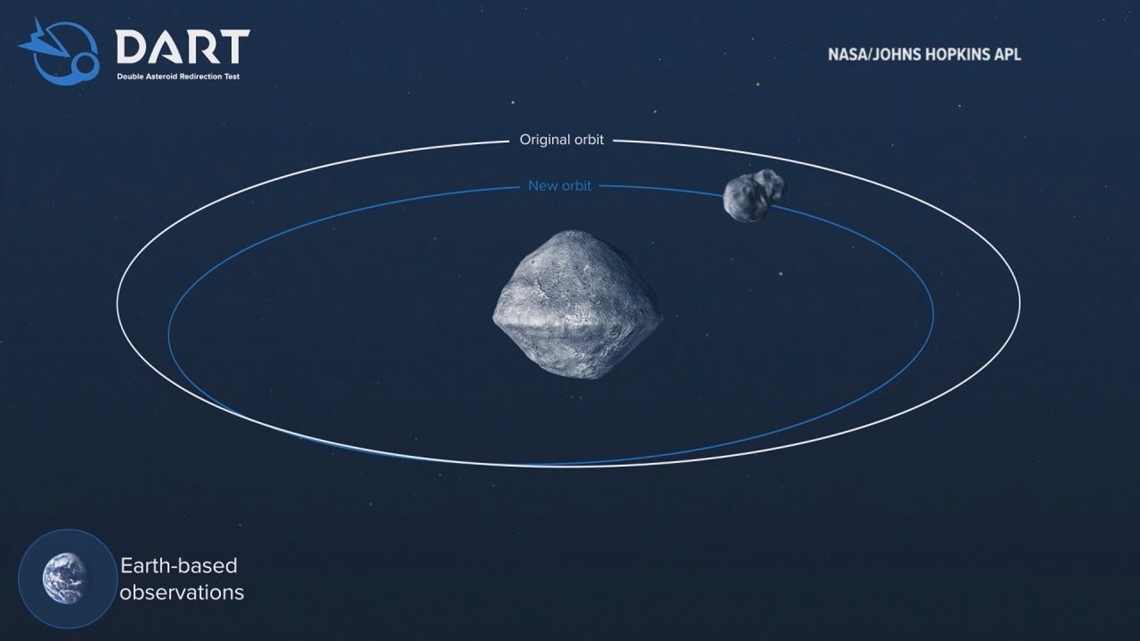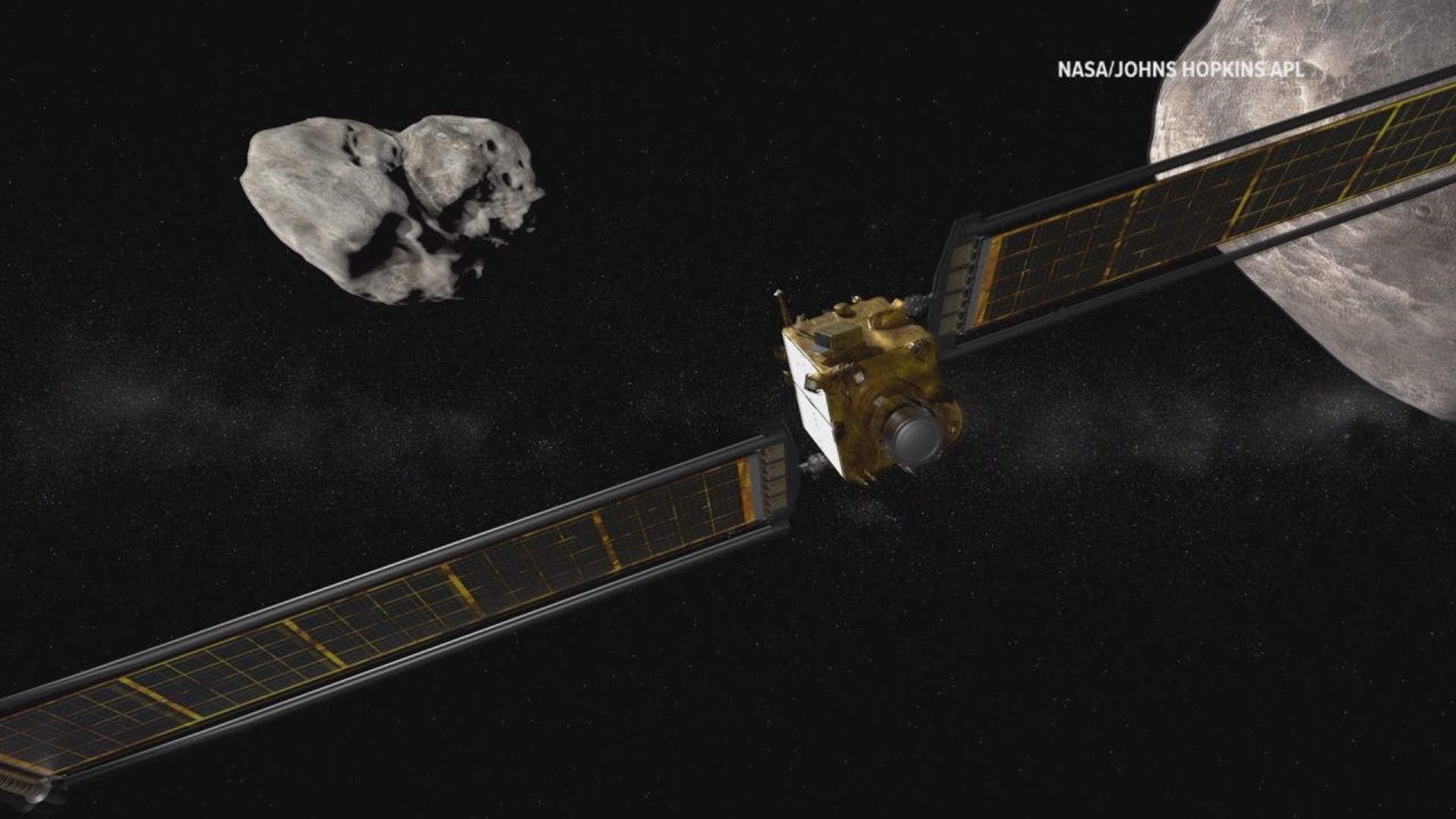LOMPOC, Calif. — NASA isn’t taking any chances when it comes to asteroids flying through space.
Wednesday morning at 1:21 am, the space agency will launch a first-of-its-kind, asteroid-deflection mission in hopes of colliding with a small moon and asteroid system.
“It’s humanity’s first ever mission to try and test a technique that would deflect an asteroid," says Lori Glaze, NASA Planetary Science Division Director.
The Double Asteroid Redirection Test, or DART for short, will travel to the asteroid Didymos and it's small moonlet, Dimorphos, which orbits around it.
“It will take 10 months to travel to the Didymos asteroid," Glaze tells Fox43. "But at the time it encounters Didymos and Dimorphos, they will be about six and a half million miles from Earth, which is actually reasonably close to Earth as far as being able to make good observations.”
DART is set to intentionally collide with the moonlet to alter its orbital period around the larger asteroid.


But why is the goal to alter the orbit of the asteroid rather than just destroy it?
“That’s always the question. People have seen so many movies and everyone thinks ‘just blow it up’," Glaze tells Fox43. "That’s actually exactly the wrong thing you don't want to do because when it’s coming at us and it’s one big rock we can, as I said, try to deflect it or speed it up or slow it down.
"If you blow it up, you then not only then have one big rock, you now have thousands of rocks that are still on the same trajectory, they are still going to hit Earth.”
This asteroid and moonlet are not a threat to Earth, but a good practice target for this new technology within planetary defense.
If successful, this test will be a tool to use in the future when our planet could be at risk.
NASA also collaborates with international space agencies regarding planetary defense strategies, since protecting the Earth involves protecting everyone on it.
“We explore the whole solar system and now we’re also trying to defend the planet so what’s more exciting than that," says Glaze.

